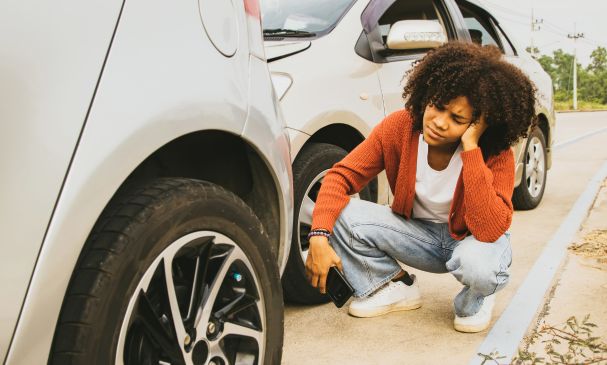The Risks of Driving Without Insurance Coverage

Although nearly all U.S. states and Washington, D.C. require auto insurance, up to 14 percent of drivers are uninsured. Driving without insurance coverage can result in costly penalties and have a harmful effect on your driving record. These consequences only get more serious if you fail to file for SR-22 or FR-44 insurance after committing a serious driving offense. We will explore the risks of driving without insurance coverage for both typical and high-risk drivers.
Why Is Insurance Coverage Important?
In almost every state, drivers with a vehicle registered in their name must file for an auto insurance policy. Each state has a minimum liability coverage amount, and some states have additional coverage requirements, such as uninsured/underinsured motorist coverage. Auto insurance is also serviceable in case of an accident. It safeguards drivers from paying full costs for bodily injuries and property damage out of pocket.
Consequences of Driving Without Insurance
When a person drives without insurance, there are consequences for breaking the law and being considered a high-risk driver. The specific penalties depend on a person’s residence and whether or not they are a first-time offender.
Legal Punishments
Drivers can expect to pay a fine, usually between $100 and $500, for driving without insurance. Many states suspend a driver’s license with fees to have it reinstated. Driving uninsured is a common reason for people to file for SR-22 insurance. This proves a person owns minimum auto insurance coverage after committing a severe driving offense. In some cases, the state will impound a vehicle, causing drivers to pay another fine to retrieve it.
Insurance Penalties
If you are found guilty of driving without insurance, you will be considered a high-risk driver the next time you file for auto insurance. High-risk drivers pay much higher monthly premiums than if they had owned auto insurance in the first place. They will likely be required to have an SR-22 or FR-44 coverage for one to five years on their driving record. Failure to pay SR-22 insurance will restart the time this policy is required.
What if You Are in an Accident?
A substantial risk for driving without insurance coverage is the costs associated with being at fault for a car accident while being uninsured. On top of the penalties discussed earlier, at-fault, uninsured drivers must pay bills for bodily injuries and property damages without a financial safety net. This can cause financial distress, which could have been avoided by paying for auto insurance.
Not Filing for SR-22/FR-44 Insurance
After committing a serious traffic offense, such as a DUI, drivers are considered high-risk and must file for SR-22 or FR-44 insurance, depending on the state they live in. When a driver’s insurance provider finds that they have prematurely canceled or failed to meet their state’s insurance requirements, there will be considerable consequences. The insurance provider will notify the state of wrongdoing, and drivers will likely have their license suspended, vehicle registration revoked, and be forced to pay a fine.
Affordable FR-44 insurance in Virginia and other states can be difficult to acquire, which is where Serenity Group can help. We help high-risk drivers find affordable coverage nationwide, so contact our team today.

Recent Comments